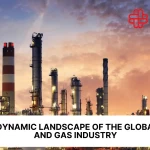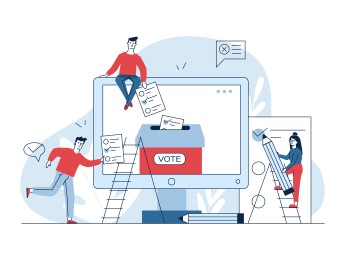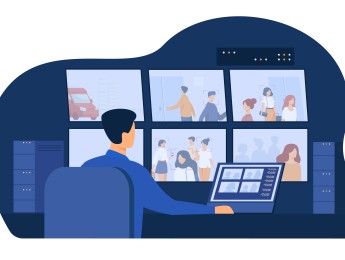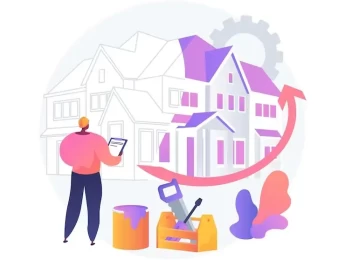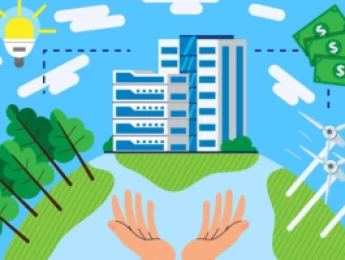Much of my public relations skills come from understanding the industry-specific audience, and the gas and oil sector is no different. You need to be confident in storytelling in a way that presents the company in a good light and helps you build strong relationships with the media. You also need to develop a strong brand that helps you integrate with the local community, campaigners, and the government at a national level. All of these things will help bolster that all-important positive reputation when done well.
Gas and oil and the broader energy sector are crucial to our lives daily and have a massive impact on global economies. However, the media often portrays them negatively, and often, even stakeholders appear only to see the bad. Therefore, you must plan, create and drive a sustainable public media approach to change these public perceptions while driving strategic change and reputation among your key stakeholders. In this course, delegates will learn how to identify your core business needs and use PR to help address your key messages and develop a positive spin on your organisational strategy.
Upon completion of this course, participants will be able to:
- Develop problem-solving skills in gas and oil PR
- Align business objectives to the PR strategy
- Get business results by picking the right tactics and channels
- Confidently work with a range of tools and techniques that make PR successful
- Confidently plan campaigns that are aligned with objects for PR
- Understand how to measure results and behavioural objectives.
- Learn risk management, including planning, measuring and mitigation.
- Identify what stories need to be placed in the media to ensure the coverage given is favourable.
- Familiarise yourself with budget constraints.
- Describe potential litigation cases and know how to handle them.
This course is intended for
- Media/press officers
- PR, public affairs, corporate communications professionals
- Middle and senior managers responsible for effective communications
- Community relations professionals
- Government and external affairs staff
- Managers of all levels and team leaders
- Anyone seeking to upskill for future job prospects
Teaching takes place in a variety of settings including face to face in a classroom environment and will ensure that participants can expand their knowledge of the subject and increase their skill set. The course is delivered via various methods by a specialist tutor. This will include PowerPoint presentations, reviewing articles and other relevant materials, group or individual exercises and discussions. There may be some independent work set, and the course will involve a requirement to submit articles to demonstrate understanding and an end of course test. Note-taking is encouraged, and you are welcome to use electronic devices to do this. The course manual will form part of the learning but give you references for the future. You are encouraged to ask questions and, if needed, spend time one to one with your tutor to go over any issues. During your time in the classroom, you will be able to network with peers in similar roles.
Day 5 of each course is reserved for a Q&A session, which may occur off-site. For 10-day courses, this also applies to day 10
Section 1: Understanding the Role of PR/Communications in Gas and Oil
- How is PR/Communication used in the gas and oil industry
- What are the challenges for gas and oil in terms of reputation and image
- The role of the reputation manager - build and defend the brand
- Stakeholder identification: Regulators and local community
- Audience identification - who are the target public
- The supply chain - exploration, retail, marshalling and engaging
Section 2: How to Tell a Story and Be Heard
- Why SMART is the best tool to be objective in your business
- How is persuasion viewed from a psychological point of view
- How to develop powerful storytelling and build your message
- POEM - how to use this tool to choose the best channels for the target audience
- Working the media - how to build relationships and be persuasive
- Understanding the power of social media
Section 3: CSR in Action: Community Power
- What is sentiment mining?
- How to identify issues that will resonate
- Involving NGOs and pressure groups
- A look at PR crisis management, cause and defence
- Brand building: why cause-related development matters
- How to encourage and engage customers, suppliers and staff
- What is social responsibility, and why you must report on it
Section 4: Crisis Avoidance and Management
- The principles of SWOT and PEST analysis
- Learning environmental scanning scenarios
- What is advanced issue management
- How to write a crisis management plan
- Exploring a toolkit that includes dark website
- Building a media spokes team - how to select and train
- Media interviews - planning and preparation
- How to brief your interviewees
- What is crisis handling
- How to recover a business after a crisis
Section 5: Combining the Tools
- Learning how to use digital and traditional media to manage reputation
- Press releases - how to plan and write before distribution
- Communications strategy writing
- How to work with the ‘C’ suite from consulting to informing
- How to improve performance by measuring performance
Upon successful completion of this training course, delegates will be awarded a Holistique Training Certificate of Completion. For those who attend and complete the online training course, a Holistique Training e-Certificate will be provided.
Holistique Training Certificates are accredited by the British Assessment Council (BAC) and The CPD Certification Service (CPD), and are certified under ISO 9001, ISO 21001, and ISO 29993 standards.
CPD credits for this course are granted by our Certificates and will be reflected on the Holistique Training Certificate of Completion. In accordance with the standards of The CPD Certification Service, one CPD credit is awarded per hour of course attendance. A maximum of 50 CPD credits can be claimed for any single course we currently offer.
- Course Code IND01-104
- Course Format Classroom, Online,
- Duration 5 days


